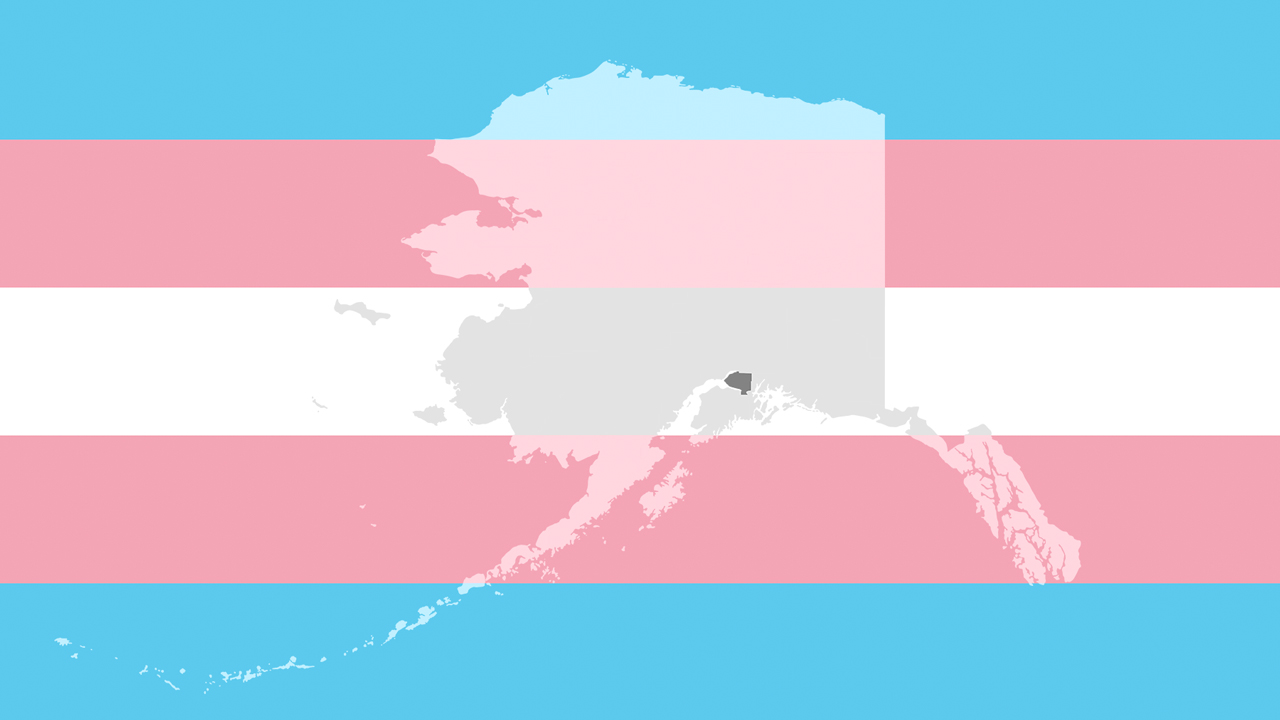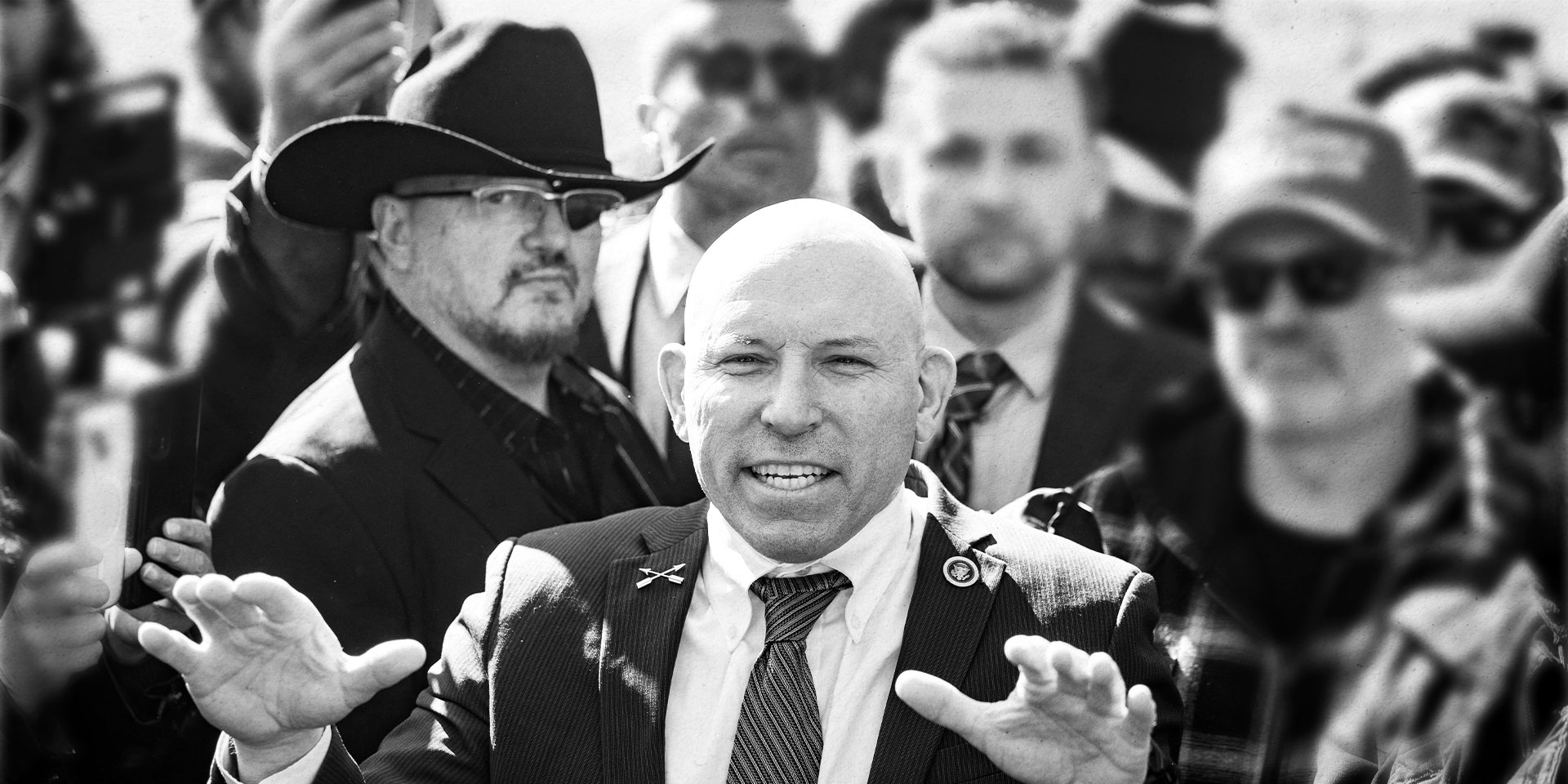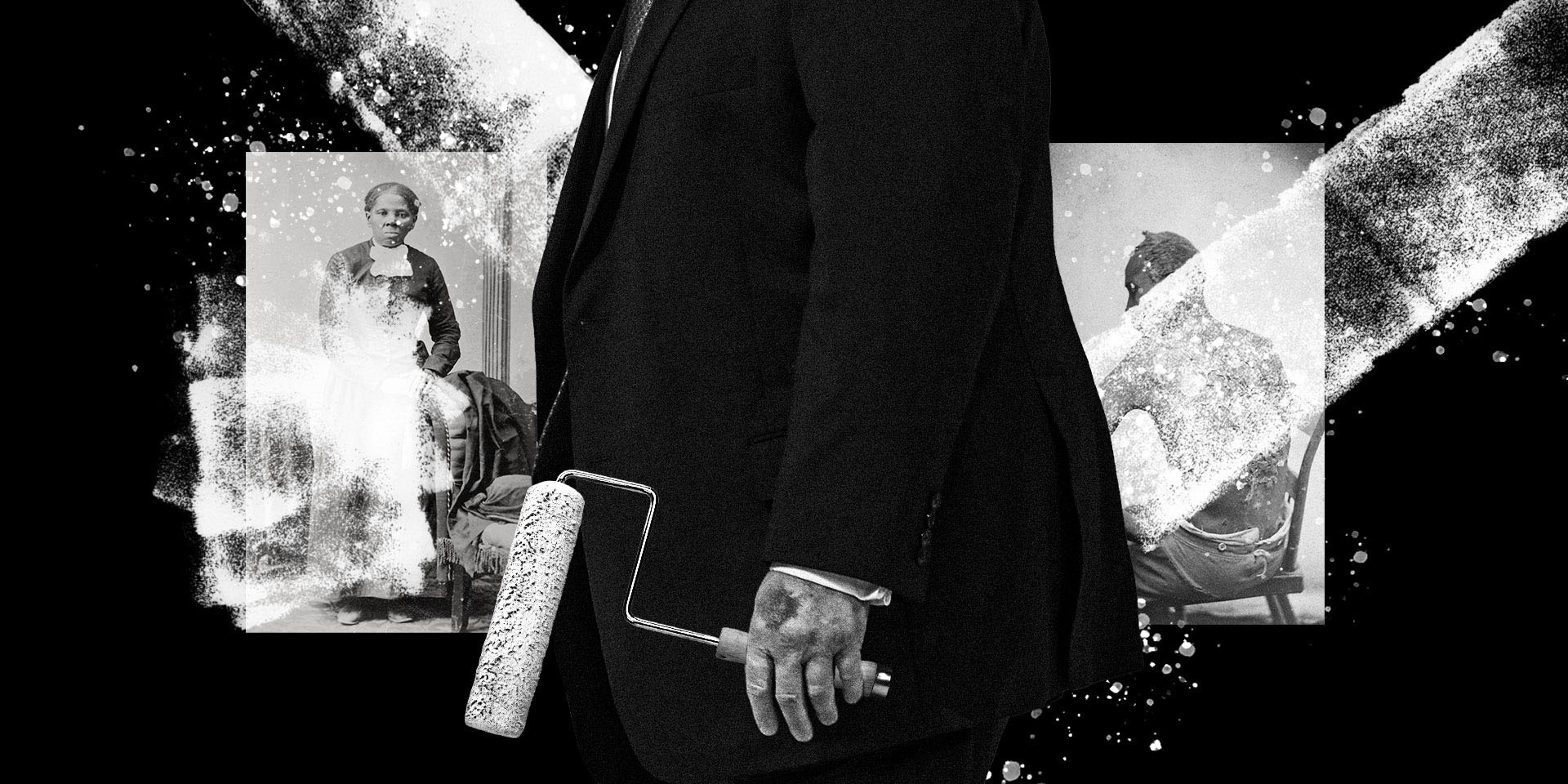Voters in Anchorage, Alaska are deciding the fate of an anti-transgender “bathroom” initiative in the city’s first vote-by-mail election (ballots are due by Election Day, Tuesday, April 3).
Proposition 1, on the ballot due to the signature-gathering efforts of the far-right anti-LGBT Alaska Family Council (AFC), would overturn some protections enshrined by the Anchorage Assembly’s (the city’s legislative body) 2015 nondiscrimination law, and require city-owned changing facilities and restrooms to be designated for persons of the same sex listed on their birth certificate. The current nondiscrimination law being targeted by the Alaska Family Council and its allies entitles people to use bathrooms, locker rooms and dressing rooms that are “consistent with their gender identity.”
Anchorage, which last year elected the state’s first two openly gay politicians, Christopher Constant and Felix Rivera, to the municipal assembly, has a long history with anti-LGBT culture wars, and the Alaska Family Council, led by its director Jim Minnery, has been the tip of the spear in attempts to deny LGBT equality over the last decade.
Minnery and the Alaska Family Council, with support from the national anti-LGBT hate group Alliance Defending Freedom (of which Minnery’s cousin Tom was a co-founder and former board chairman), led the campaign against Anchorage’s Proposition 5 in 2012, which would have added sexual orientation and transgender identity to the city’s civil rights code. The initiative failed after an ugly campaign against it that included anti-transgender cartoon ads former Governor Tony Knowles described as “intentionally stigmatizing” and “dehumanizing.”
For advocates of equality, the 2012 electoral defeat was a recurring nightmare: In 2009, the Anchorage Assembly approved an ordinance enacting similar protections against discrimination for LGBT people, but then-Mayor Dan Sullivan, a conservative, vetoed the measure in the face of heated opposition by far-right activists, who protested the measure with signs such as “I was born black you choose 2B gay” and “when the ‘Gay Agenda’ destroys Civil Liberties everyone loses!!!” Sullivan’s father George vetoed a similar LGBT anti-discrimination measure as mayor in 1976.
The Anchorage Assembly revisited the issue in late 2015 and passed a civil rights ordinance 9 -2 making it illegal to discriminate based on sexual orientation or gender identity, including provisions for people to use the bathroom or locker room “consistent with their gender identity,” defined as “gender-related self-identity, as expressed in appearance or behavior, regardless of the person’s assigned sex at birth,” established by evidence that the gender identity is “sincerely held, core to a person’s gender-related self-identity, and not being asserted for an improper purpose.”
Opponents of the equal rights ordinance pledged to repeal it, and last year signatures were collected for the initiative that would become Proposition 1, sponsored by Minnery’s wife, Kim.
If enacted, Proposition 1 would erase the current law pertaining to bathrooms and changing rooms and require city-owned buildings like libraries and public venues to designate such facilities for persons of the same sex, defined by a person’s “immutable biological condition of being male or female” as determined by “anatomy and genetics at the time of birth,” with an “original birth certificate” as “definitive evidence” of an individual’s sex.
The opposition to Proposition 1, led by a group called Fair Anchorage and supported by Freedom for All Americans, Planned Parenthood of the Great Northwest and Hawaiian Islands and the ACLU of Alaska, had outraised the Yes on 1 campaign by a factor of 10 by early March, but a similar fundraising advantage by equality advocates in 2012 didn’t add up to a win at the ballot box.
Much like in the 2012 campaign, Minnery and the Alaska Family Council are relying on scare tactics like the debunked “bathroom predator” myth to convince Anchorage residents to vote yes on the initiative.
“Currently we’re seeing our opposition push out really offensive TV ads that hinge on evoking fear in voters,” says Kati Ward, campaign manager for Fair Anchorage. “We knew that would be the case since it’s the exact same tactic that has been used in similar campaigns in the Lower 48. Fair Anchorage’s job is to figure out how do we address that fear with Anchorage voters, but the biggest hurdle is that those conversations and a deeper understanding of transgender people takes time.”
The Yes on 1 campaign is running a 30-second television commercial featuring a woman named Kate recalling an experience with a transgender person at a public pool, alleging that the individual was looking at women in the shower area and concluding, “Predatory men are using these laws to violate women.”
The advertisement may backfire with Anchorage voters, though, as it commits the cardinal political sin of featuring a non-Alaskan. According to a report by the LGBTQ website INTO, the woman featured in the ad is Kate Ives, a resident of St. Paul, Minnesota. Ives was active in a similar anti-transgender bathroom bill campaign in Minnesota, and has produced similar videos for Ask Me First, an anti-transgender campaign with branches in 40 states, INTO reports.
Minnery did not respond to detailed questions from Hatewatch.
“The reality is we’re seeing these ‘bathroom bills’ come as a backlash to marriage equality and it’s become a wave across the country,” Ward says. “As soon as marriage equality was obtained, then the bathroom bills started popping up.”
“I honestly don’t know exactly how we would enforce something like that… that would be something that would be extraordinarily difficult for us to deal with,” Anchorage Police Chief Justin Doll told the Anchorage Assembly regarding Proposition 1’s birth-certificates-for-bathroom-use requirement. “I don’t think APD has the capacity to staff bathrooms with police officers for checking ID… I mean, it’s hard to say that with a straight face.”
Both leading mayoral candidates, incumbent progressive Ethan Berkowitz and conservative challenger Rebecca Logan, who are also on the ballot in this election, have come out opposing Proposition 1.
Other opponents of Proposition 1 include a coalition of businesses including oil and gas behemoth BP, Wells Fargo, the Anchorage Chamber of Commerce and dozens of local clergy. Keeley Olson, executive director of Standing Together Against Rape (STAR), the leading group in Anchorage devoted to combating sexual violence, is featured in a television ad opposing Proposition 1, declaring, “ensuring dignity for transgender people is not a threat to public safety.”
But the campaign against the discriminatory and hateful Proposition 1 has its most forceful spokesperson in Fair Anchorage co-chair David Lockard, who has an 18-year-old transgender son, Col. Lockard, his wife Debbie, Col and Col’s younger sister appear in a television commercial opposing Proposition 1.
“I’m scared that if Proposition 1 passes, I’d be bullied and harassed and forced to use the girls’ restroom at school,” Col says in the ad.
“The target audience [for the Yes on 1 campaign] is people who look like me,” David Lockard tells Hatewatch. “I’m an old white guy. I like to fish and hunt, I’m an engineer, I manage construction projects, and I’m the target audience — the people who persecute people in our country, whether it’s transgender or others, are people who look like me.”
Lockard describes himself as liberal and open-minded, and says he and his wife have had gay and lesbian friends since high school, but when Col came out as transgender to David and his wife three years ago, “We didn’t really didn’t know what it meant to be transgender.”
Lockard believes many voters who are undecided on Proposition 1 don’t know what it means to be transgender either, and his prescription for them is “meet my son,” describing Col in superlatives.
“I didn’t know I knew any transgender people when my son came out,” Lockard continues. “Now I can probably name 30 just in Anchorage, and I haven’t met anybody who isn’t just a really decent person. Because they suffer so much from persecution, they’re very conscious of treating other people well.”
The Fair Anchorage campaign is banking on Anchorage voters’ compassion and understanding to defeat the hateful Proposition 1. “I think through the field program, talking with Anchorage voters, building an understanding of transgender people through regular conversations with the community, that’s what will make the real difference in this campaign,” Ward says.
“This bathroom bill is a venal attempt to find some way to attack a group of people who are not hurting people,” Lockard says. He also points out that Proposition 1 will likely be challenged in the courts if it passes. “We’re going to win,” he says. “Unfortunately there’s a lot of suffering in the process.”






